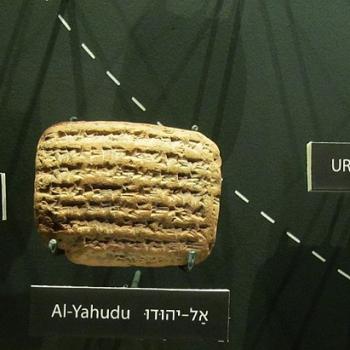Male performance problems can be found right in 1 Kings 1. King David is 70 years old, yet he is bedridden and can’t get warm, apparently from poor blood circulation. The royal staff’s solution is to seek out a beauty contest winner as a nurse to lie in the king’s arms and restore his circulation. However, David is apparently not inspired to do anything sexual with this girl who is lying in his arms.

Time for the Jerusalem Men’s Clinic! If a knockout like Abishag can’t get David excited enough to perform in bed, then in the eyes of those who are privileged to that information, this king is as good as dead. It’s not surprising that here is the cue for David’s oldest surviving son, Adonijah, to make his attempt to seize the throne. When Solomon is crowned instead, Adonijah asks for Abishag to become his wife, who had technically been David’s wife, again potentially giving him a claim to the throne.
Male performance issues are not directly addressed anywhere else in the Bible. The question of whether a man is able to father children in later years is no indicator, since fertility is an entirely different issue, and the ability to conceive a child through one act of intercourse does not rule out other male performance problems.
After Sarah dies, we are told that Abraham marries Keturah and conceives several sons (Genesis 25:1). If the timing is literal, Abraham would have been at least 132 when he marries her, which points to the strong possibility that the report of this marriage has been chronologically displaced. We are told in Deuteronomy 34:7 that when Moses dies at age 120, his “vitality” (literally his “sap” or moisture) was not diminished. Hebrew Bible scholar William Albright claims this means that Moses was “still good in bed” (see his article “The ‘Natural Force’ of Moses in the Light of Ugaritic,” Bulletin of the American Schools of Oriental Research 94 (1944), 32–35), but that claim is debatable; it is just as likely that the word means “vitality” in a broader sense (see my post: http://www.patheos.com/blogs/tomhobson/2017/09/methuselah-man-vitality/).
Babylonian texts from the world of the Hebrew Bible have prescriptions for male performance problems. One text says to mix magnetic iron ore with vegetable oil, apply it to both partners’ navels, and then “both will find satisfaction together.” (See original Babylonian text at http://www.kchanson.com/ANCDOCS/meso/saziga1.html.) Another text says, “If a man’s potency is taken away and his heart does not rise for his own woman or for another woman,” then set up a reed altar facing Ishtar-of-the Stars. Sacrifice a sheep, take a censer of juniper and offer a beer [sic!] to the goddess. Give her the sheep’s shoulder, fat, and roast. Make two figurines out of tallow, two out of wax, two out of tar, two out of gypsum, two out of dough, and two out of cedar. Burn them in a fire facing the altar, and recite a long incantation three times. (See Babylonian text at http://www.kchanson.com/ANCDOCS/meso/saziga2.html.)
Male performance issues need to be defused as an intense emotional issue. Most cases involve natural decreases in testosterone and/or blood flow that occur with age, although sometimes cancer, serious cardiovascular disease, or psychological factors may also be involved. The “aren’t you man enough?” insinuation needs to be sent back to Gehenna, where it belongs.
Many a young man who struggles to resist his sex drive has prayed for God to take his intense desires away. When it finally happens 40 years later, what happens may not be exactly what he prayed for. For those who wish to live a chaste single life, this development may be a God-send. But for those who have spouses, the issue needs an answer: How can I fulfill my responsibility as God’s only provision for the needs of my spouse? (That spouse, of course, may be dealing with her own disconcerting changes related to age, emotional, and medical realities.)
Take the Abishag solution completely off the table. (Please note that it did not work for David, not that this matters.) Today, we have better medical solutions than ever existed before, for both hormone and blood flow deficiencies. But these solutions are financially costly. Are these good stewardship decisions? Should the cost of such medical treatments be likened to the cost of cancer or arthritis treatments, or should they be likened to the cost of liposuction or cosmetic surgery, i.e. non-essentials?
Or is it a more faithful discipleship decision to downsize our desires and expectations? Such a decision needs to be mutual. Our souls may need convincing that less sex does not mean less love, but so be it. Here we come to appreciate that sexual desire is a gift from God, even if it is more powerful than we would wish at some points in our lives, and less powerful than we would wish at other points. Like all good earthly gifts, it is a gift we cannot keep forever, and one that we will not need in the age to come (Matthew 22:30 and parallels). Nor will we miss it, because we will be overwhelmed by the joys of eternity, which will make the joys of this life seem like childish toys by comparison (1 Corinthians 13:11).















